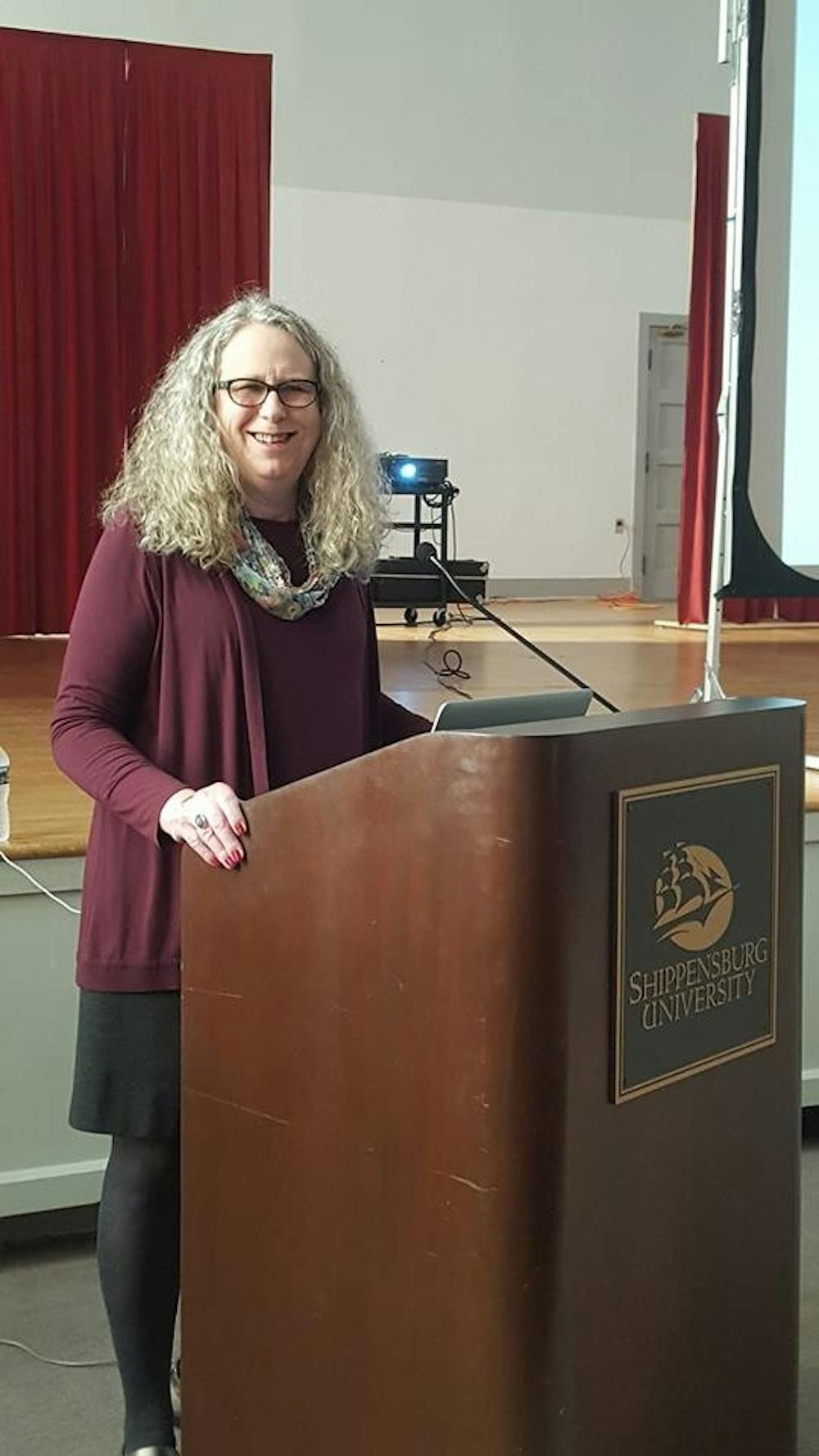Pennsylvania’s physician general Dr. Rachel Levine addressed the audience in Shippensburg University’s Old Main Chapel on March 27 on issues concerning the LGBT community, including sex, drugs and gender identity.
Levine divided her time between discussing Pennsylvania’s public health and advocating for LGBT rights. While discussing the latter, Levine dove into her own experience of transitioning from male to female, as well as the after-effects of the process.
Levine began the lecture by discussing terminology used for members of the LGBT community, including intersex, agender and pangender.
Levine said “queer,” a once offensive term, is now considered an accepted umbrella term for those in the LGBT community.
Levine stressed that allies, those who are not part of the LGBT community yet support LGBT rights, are crucial to improving gay rights.
“Allies are absolutely critically important for our equality and our freedom,” Levine said.
Sexual orientation and gender identity were also discussed, and Levine said they are separate concepts that act independently of one another. Sexual orientation explains what gender or genders a person is sexually attracted to, and gender identity describes how someone views their own gender, according to Levine.
Levine recounted her own experience of transitioning from male to female, a thought she had had since age five after reading a comic book where Superboy turned into Supergirl.
Levine “compartmentalized” feelings about her gender for years, yet those feelings lingered into adulthood.
“Gender was always on my mind,” Levine said. “It was like a splinter in my brain.”
Levine said she was fortunate to receive opportunities as a transgender woman, considering there are certain groups in the LGBT community that struggle more than others. Transgender individuals of color and transgender youth in particular face more discrimination and abuse, according to Levine.
“I think we need to work together for all of us for progress and not just fortunate individuals,” Levine said.
Another issue discussed was the opioid crisis in Pennsylvania. According to Levine, the over-prescribing of pain killers, such as oxycontin, has increased drug abuse. Levine said LGBT individuals are at a higher risk of abusing opioids.
According to Levine, heroin has also become a danger to public health in Pennsylvania because of the way it is treated and viewed by society.
“It is cheap, it is very powerful, it is plentiful and it is everywhere,” Levine said.
Levine closed by encouraging everyone in the LGBT community to stay confident in who they are.
“You can love who you love, you can be who you are, and you can achieve anything.”




The Slate welcomes thoughtful discussion on all of our stories, but please keep comments civil and on-topic. Read our full guidelines here.